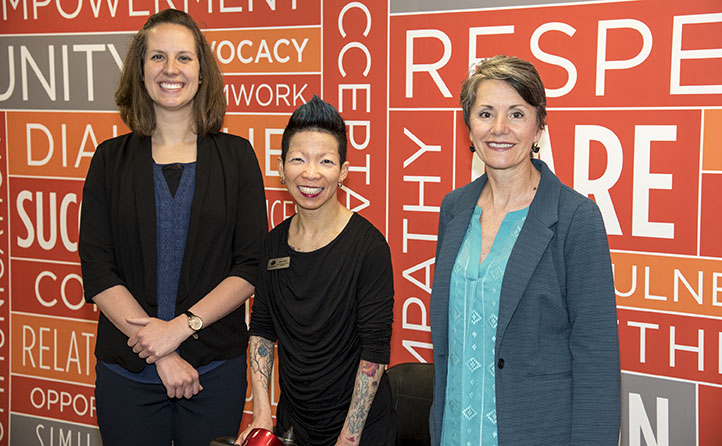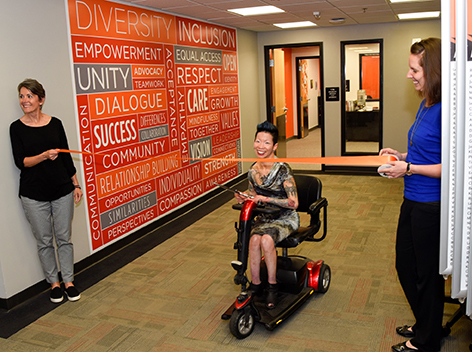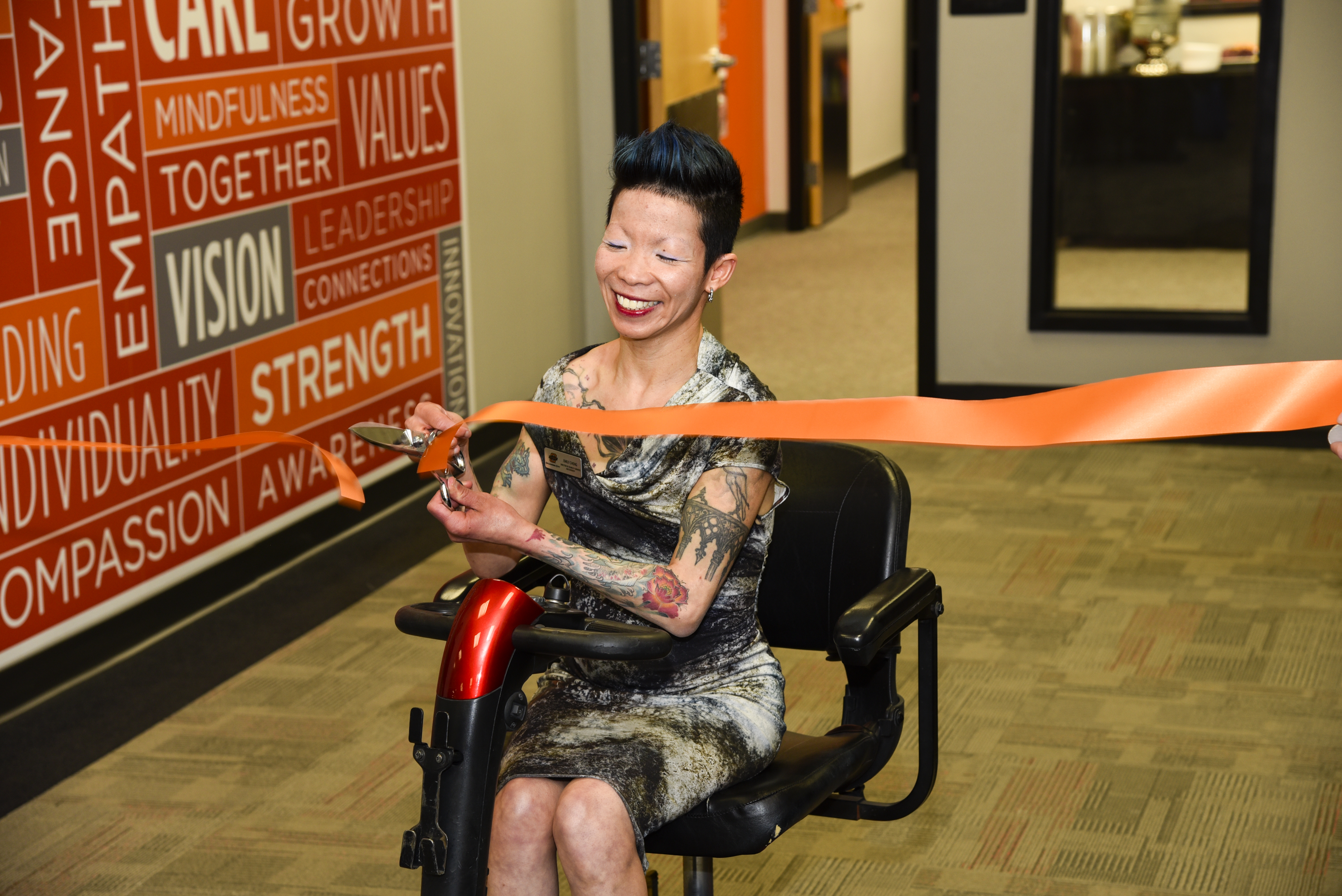Remodeled Disability Services and Diversity office dedicated
OSU-OKC Disability Services and Diversity Office unveils new office space and focus
With a merging of staff and remodeled office space, officials with the newly minted Oklahoma State University-Oklahoma City Disability Services and Diversity Office want students, faculty and staff to know they are here to help with a range of services.

“We went from a one-person office to a three-person team,” said Emily Cheng, director of Disability Services and Diversity (DSD). “We moved into our remodeled area in December. The construction and building maintenance team did an amazing job of getting it revamped and remodeled to suit our needs.”
Staff members in the new office represent a merging of existing, naturally aligned positions into one office to more efficiently and effectively provide services to students, staff, and faculty. In addition to Cheng, additional staff members in DSD are Jeanette Buttram, interpreter coordinator, and Calista Choate, interpreter and disability services advisor.
Cheng said the restructuring – which took place last July – was based on data indicating a need for an office dedicated to helping more students with a diversity of needs.
“One of the factors that motivated this process was seeing a big increase in the number of students with disabilities asking for accommodations,” Cheng said. “The population of students with disabilities requesting accommodations has quadrupled in the past 15 years.”
Cheng is also ardent about the department’s other mission – advocacy. To fulfill the advocacy mission, DSD will coordinate diversity and inclusion initiatives across campus. For instance, Cheng noted a recent communication workshop she and her colleagues organized that focused on how to have challenging conversations with respect, civility, and positivity.
With almost a year of working together under their belts and nearly six months in their new space, the three staff members noted they'd learned a great deal from each other, and see synergy in the restructuring.
"I think it's working well," Choate said. "I like the collaboration and the focus on providing resources and accommodations for students, and providing resources and tools for faculty and staff as well."
Buttram agrees the changes strengthen their offerings to the campus.
"In my work specifically for deaf students and other students with disabilities, I usually work with the interpreters on campus,” she said. “The goal is to make sure we meet everyone's needs. We want to make sure that equal access to communication is occurring in the classroom and across the campus. Being together in one office helps us do that.”
In addition to aligning staff to facilitate collaborative efforts, the new office space was revamped to make it more physically accessible for students with a variety of needs. Signage in the office complies with the Americans with Disabilities Act (ADA). Computers equipped with technology for people with various types of disabilities stand ready for student use, and there's a storage closet stocked with tools such as Livescribe pens and video handheld magnifiers students may check out as needed. 
Even the office's walls play a role in conveying DSD's mission. Just outside the office entrance, a large graphic mural signals a welcoming message of empowerment with words such as inclusion, unity, dialogue, and community, reflecting the bold spirit and energy of the office's purpose.
"It's been an interesting and very fun journey so far. We've been trying to get this restructuring done for a while," Cheng said, bubbling with enthusiasm. "I'm very excited about the opportunities this office will have to help our students, faculty, and staff and to work with the whole university."
